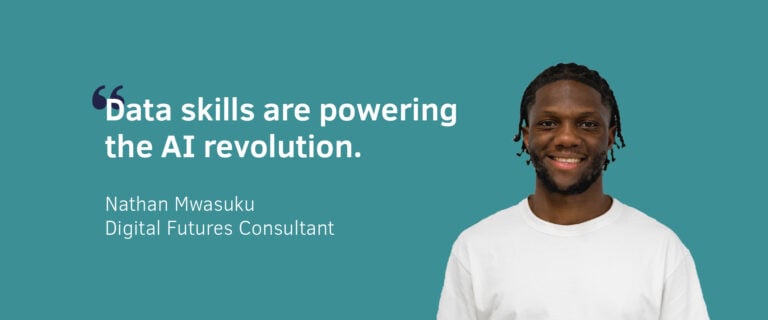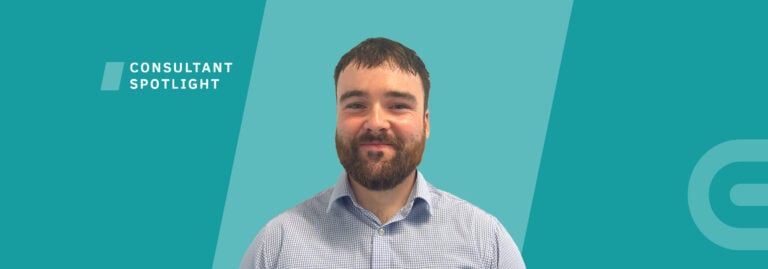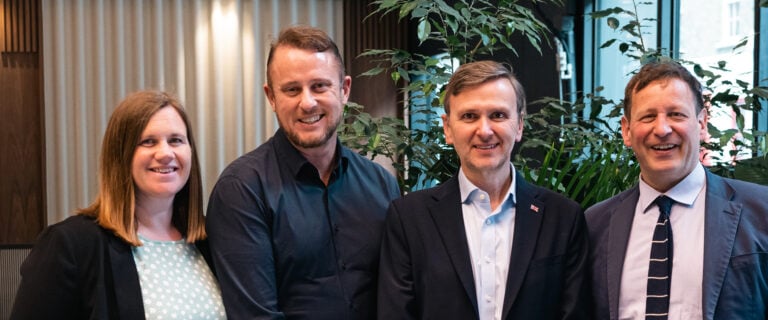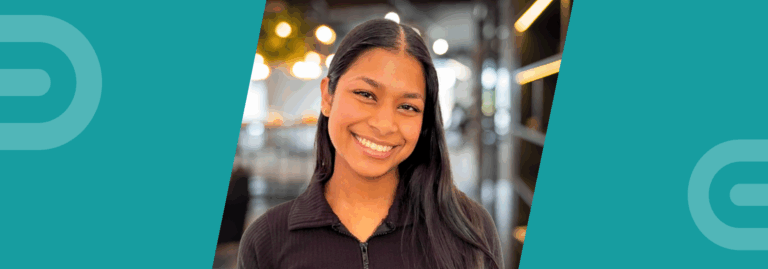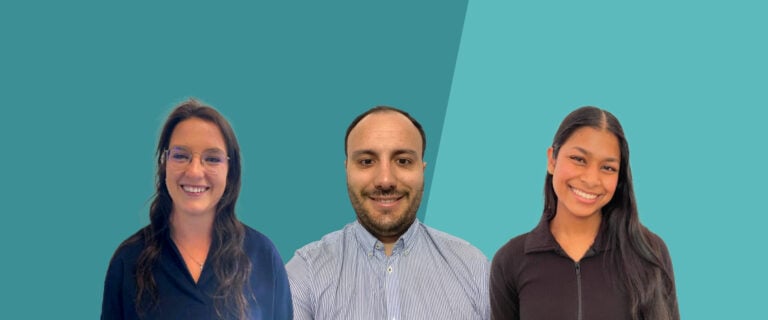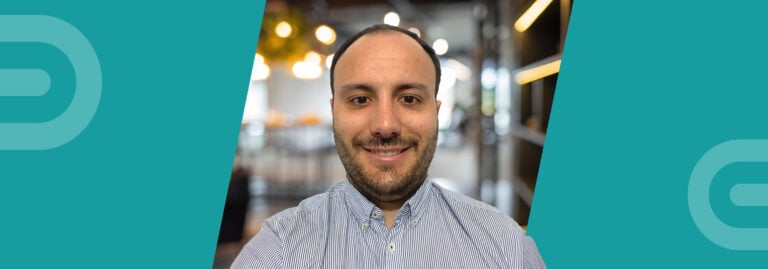
In our latest consultant spotlight, we caught up with Divya who has spent the last year launching her tech career in Stevenage on placement with a global investment bank.
I consider myself a bit of a career changer as I previously worked as a system design engineer on aerospace turbines and gas turbines. I was working in the world of STEM and traditional engineering, but I had my first experience with programming on an internship when I was given a special side project where I had to make an end-to-end Alexa-style app. It was designed to save time and costs on laborious tasks that could be easily automated. I found it incredibly rewarding and that’s where my passion for tech kickstarted. Seeing the impact that code could make opened my eyes to the world of careers in tech.
In the background I started using resources like Coursera and YouTube to immerse myself in the world of coding. At the time, I didn’t really know what technologies to look for and as a newcomer I was only getting the basic level technologies to learn in my searches. Now that I work in tech, I know exactly what to look for but at the time I didn’t know the most relevant technologies. I think the same goes for looking for a job – the more you know, the more you can actually find what you’re looking for. Data science and AI are really hot topics that a lot of people are applying for but unless you’re in that world, you don’t really know what the job requirements are or what skills you really need. Sometimes you needed a PhD or five years of experience in tech – AWS, Meta and Microsoft’s requirements were all like that. It was incredibly competitive, and the barriers were really high from the beginning.
I had been looking at various bootcamp-style programmes and Digital Futures came up in my search because I had been looking at AWS. I liked the look of the programme because it was incredibly relevant. You learn about cloud and important technologies that are actually used in the real world in-depth. The certifications you get mean something outside of the world of Digital Futures. There is also a whole section dedicated to personal development in the Academy and that really stood out to me when comparing Digital Futures with similar companies.
I remember the application process so well because it was incredibly and surprisingly fast. I’d become used to getting rejections after 6-7 months and Digital Futures got back to me within a week. I also really liked the process because it focused on my skills in what I actually love and what I wanted to work with – technology.
When I look back on my Academy experience, I remember just being unbelievably focused on getting deployed because that’s what I desperately wanted. And that meant I had to work really hard – I was hustling a lot and going the extra mile. I liked that we were constantly being challenged and tested – Lisa would give us an unexpected SQL quiz on a random day, and we’d be expected to get that done by the end of the day. It kept me on my toes and made sure that I was always revising and always working on my skills. The Academy cemented whether I truly understood what we were being taught and whether I could apply that. We were learning real-life technologies like Terraform, Ansible and Infrastructure-as-Code, which I never would have been able to find without the Digital Futures Academy.
"I liked that we were constantly being challenged and tested. It kept me on my toes and made sure that I was always revising and working on my skills."
Divya Munshi, DevOps Engineer
The skills I learned in the Academy are incredibly transferable. I’m currently working in a pod on an Entitled Management System, where my pod essentially covers the DevOps side of things to ensure the migration of different platforms on to one single platform. We enable the assistance of pipelines, make sure releases go smoothly and make sure that clean ups occur.
My deployment is really interesting and I think a little bit different to what you might expect from a typical consulting role. I’m working alongside a number of Digital Futures consultants at a global investment bank at their tech hub in Stevenage. The environment here is completely tech focused, rather than being a trading-style environment which you might find in the London office of an investment bank. Ultimately, the end goal of this particular programme is that we become internalised and permanent employees of the bank.
Everyone here is new to a career in tech so there’s a really young and vibrant energy here. It’s incredibly collaborative and we all get to know each other really well. We get the work done but we also have time to socialise and celebrate things like Diwali or Chinese New Year and things like that. It’s a young hub and there’s a real sense of it being like a family here. Everyone in the Stevenage office, including your line managers or internal “higher ups” are aware that we’re all new to this career and this workspace. There’s a clear understanding that we’re here to learn and to progress so there’s flexibility to take your time to learn and collaborate to get tasks done. I feel really grateful to have landed in this particular programme in Stevenage with this team.
"Digital Futures has played a pivotal role in my journey and has supported me from the get-go. I am very fortunate that I have Digital Futures and the support they give us is totally incomparable."
Divya Munshi, Consultant
Digital Futures has played a pivotal role in my journey and has supported me from the get-go. I am very fortunate that I have Digital Futures and the support they give us is totally incomparable. We have weekly stand-ups with our Delivery Manager, and she comes at least once a month to visit us in Stevenage, usually more than once a month and that keeps us well connected with the Digital Futures team. She’s always on hand to help me, whether it’s how to formulate answers to something, how to approach someone if I have a blocker or how to action feedback from my line manager so I can make sure I’m always improving. She will ask me how I truly feel about something and get me to think about things in a different way. I also get other amazing opportunities with Digital Futures to be on interview panels for the Academy, take part in mentoring schemes and go to the socials which really cement that I’m part of the Digital Futures family, so I really, really love that.
Not on our email list? Sign up here to get the latest Digital Futures news, updates and tips.
Find our FAQs for careers in tech here.
Read more about our Data Engineering pathway.
Read more about our Data Analytics pathway.
Read more about our Digital Transformation pathway.
